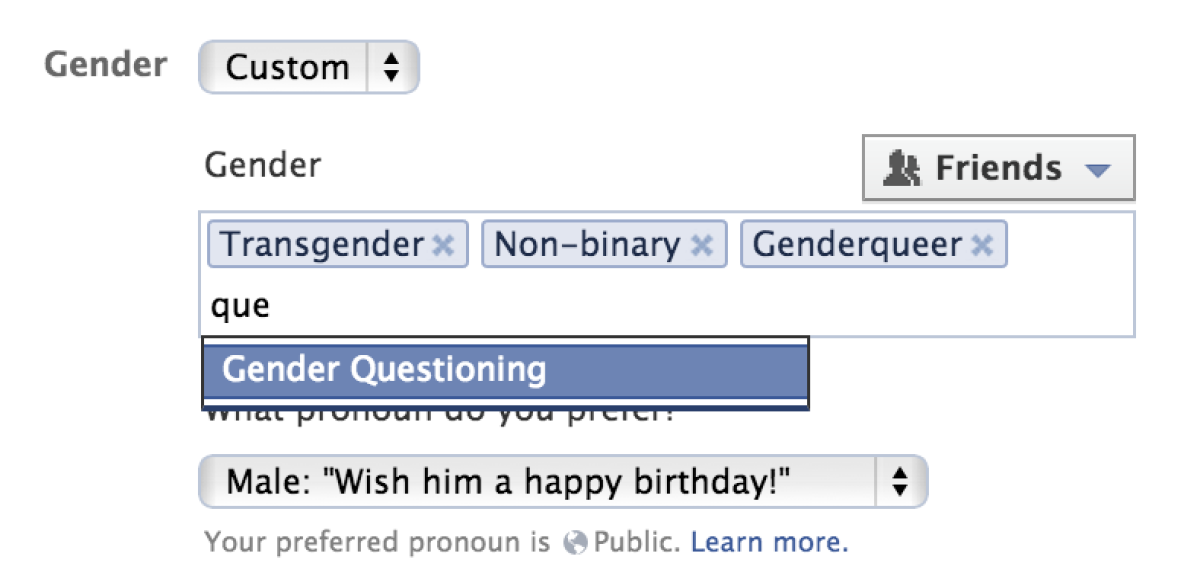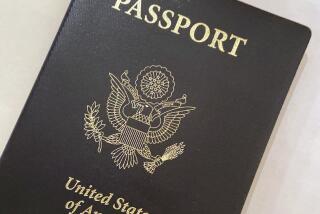Don’t want to identify as male or female? Facebook adds more options

- Share via
In a move that is being applauded by LGBT and civil rights activists, Facebook has made it possible for users to choose a gender other than male or female.
The 1-billion member social network Thursday began allowing those in the U.S. to pick “male,” “female” or “custom” as their gender. Users who pick “custom” can type in up to 10 gender terms that they prefer to go by.
Additionally, Facebook is making it possible for users to let their friends know which pronoun they prefer to be referred by, choosing from “him,” “her” or “them.”
PHOTOS: 10 ways to use the sharing economy
“While to many this change may not mean much, for those it affects it means a great deal,” a Facebook spokesman told The Times. “We see this as one more way we can make Facebook a place where people can express their authentic identity.”
To change genders on Facebook, users can head to the “About” page on their profile, scroll down to “Basic Information” and choose “edit.” Under “gender” they can pick the option they would like.
Chad Griffin, president of the Human Rights Campaign, said Facebook’s decision to expand gender options is a big step for users who do not identify as either male or female.
“Over the past few years, a person’s Facebook profile truly has become their online identity, and now Facebook has taken a milestone step to allow countless people to more honestly and accurately represent themselves,” Griffin said in a statement. “Facebook’s action is one that I hope others heed in supporting individuals’ multifaceted identities.”
Nearly 10% of lesbian, gay, bisexual and transgender youth fall into “gender-expansive” grouping, according to a survey of 10,000 by the Human Rights Campaign. Among the most common terms that those youth identify with were “transgender,” “queer,” “gender-queer,” “gender fluid” and “non-binary.”
ALSO:
Facebook launches ferry service on San Francisco Bay
Verizon offers more data, discounts with More Everything plan
Verizon Wireless to close five call centers, consolidate seven others






